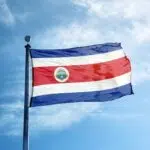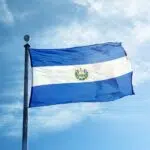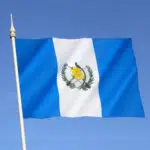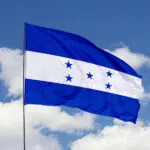International Day of Democracy on September 15 allows us the opportunity to celebrate and appreciate our democratic society. It’s very easy for people who live in a free society to take their freedoms for granted. Yet, when freedom is absent, life includes unimaginable challenges that are often incomprehensible. Today, let’s reflect on the history of democracy around the world, thank those who influenced the development of our government, and look for opportunities to promote and protect our own nation’s democracy.
History of International Day of Democracy
The United Nations (UN) General Assembly passed a resolution in 2007 that September 15 of each year would be observed as the International Day of Democracy. Their goal for this day is to promote government’s role in maintaining open democracy among all member nations of the UN Charter and to celebrate the system of values democracy promotes, giving citizens the power to make decisions regarding all aspects of their lives.
In their efforts to advocate for democratic societies around the world, the UN serves a variety of purposes including monitoring elections, working to strengthen democratic institutions and accountability, and assisting nations recovering from conflict to create their own constitution.
From democracy’s birth in ancient Greece thousands of years ago to today, the foundation of a democratic society is the ability of its people to participate in the decision-making process of their nation. This can only happen when everyone is allowed to vote regardless of race, gender or other factors meaning inclusion and equality are also important to the success of a democratic society. In America, we have a representative democracy meaning we elect officials to represent our collective voice to vote on decisions.
As you reflect on your own freedoms and consider the country’s current state of democracy, take inventory of how many ways you participate in the collective-decision making of our country, and support the ideals of democracy.
International Day of Democracy timeline
Aristotle wrote about various types of governments, including democracy, in order to compare the different systems and contemplate which was the most successful; these writings were influential to the development of modern-day democracy.
King John of England cedes absolute power by signing the Magna Carta. Although it doesn't create a democracy, it forms the basis for a parliamentary form of government.
The US Constitution sets forth the powers of the United States government and spells out important limitations of the government designed to protect the basic rights of American citizens.
New Zealand was the first country to grant women the right to vote. They allowed women to participate in the election process before many other countries including the U.S. and UK
International Day of Democracy FAQs
How many countries are not run under democracy?
Around the world, four countries claim not to be run under a democratic government: Saudi Arabia, Burma, Brunei, and Vatican City.
Who invented the government?
The first government was formed in Athen in 508 BC.
When is the International Day of Democracy?
September 15.
International Day of Democracy Activities
Get involved
Every year, the UN holds official global events that spread awareness about democracy in action. Past themes have included encouraging young people to take part in democratic movements, addressing sustainable development, and promoting civility within societies. Learn more about this year’s theme and events and see what you can do to take part.
Learn about political candidates
Our responsibility as citizens to vote is important but we shouldn’t go into the voting polls uninformed. Today, take some time to learn about the candidates in upcoming local, state, and federal elections. Make sure the candidates for whom you cast your ballot are actually aligned to your ideals, will serve their constituents, and make decisions for the betterment of the community. A great source to help you become a well-informed citizen is Wise Voter.
Exercise your rights
As a member of a democratic government, you wield great power. Democracy is both a goal and a process that hinges upon your involvement. Thanks to digital advancements, it’s now easier than ever to contact representatives, advocate for causes, vote and make a difference in our unique form of government.
5 Key People Shaping American Democracy
Thomas Paine
Thomas Paine was an influential writer who inspired the American revolution. He wanted to see an end to executive tyranny and felt the extension of political power to all was the best way to achieve this.
Thomas Jefferson
One of our founding fathers, Thomas Jefferson was considered one of the biggest proponents of democracy. He drafted the US Declaration of Independence famously stating “All men are created equal”.
Susan B. Anthony
Susan B. Anthony campaigned for the democratic ideal that all people should be allowed to participate. She fought against slavery and for women’s equality and the right to vote.
Dr. Martin Luther King, Jr.
Martin Luther King, Jr. was one of the most prominent figures in the US civil rights movement. He fought for the ideals of true democracy and extending the right to vote to the African-American community.
William Penn
William Penn, an English Quaker who believed in religious and political freedom, was an early advocate for uniting the original colonies of America.
WHY WE LOVE INTERNATIONAL DAY OF DEMOCRACY
It gives power to the people
Democracy is powerful because it gives a voice to its nation's citizens, enabling them to make changes as they see fit. One of the results of this form of government is that democratic changes create space for new economic theories to emerge, ultimately leading to a world of innovation and improvement.
It's based on change
A cornerstone of democratic societies is that they have the power to make change when necessary. In principle, if things are going well, citizens have the power to maintain the status quo. But if things don't work out, it’s up to the people to throw out the old and bring in the new.
It’s based on equality
The founding documents of democratic governments put great emphasis on equality — one person, one vote - no matter who you are or your station in life. While this idea has not always been constant or popular over the centuries, equal rights under the law are central to democratic governments.
International Day of Democracy dates
| Year | Date | Day |
|---|---|---|
| 2025 | September 15 | Monday |
| 2026 | September 15 | Tuesday |
| 2027 | September 15 | Wednesday |
| 2028 | September 15 | Friday |
| 2029 | September 15 | Saturday |



































